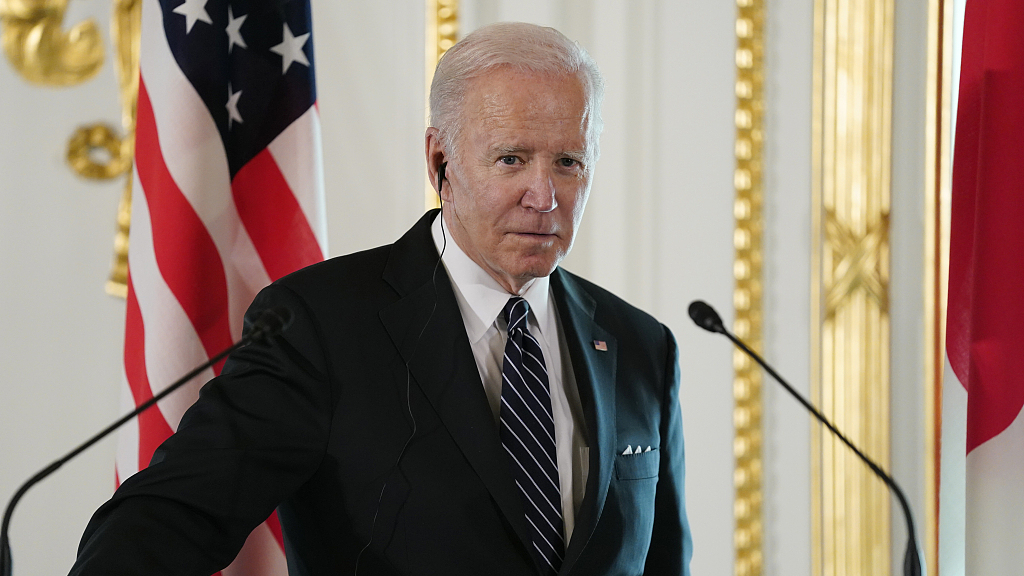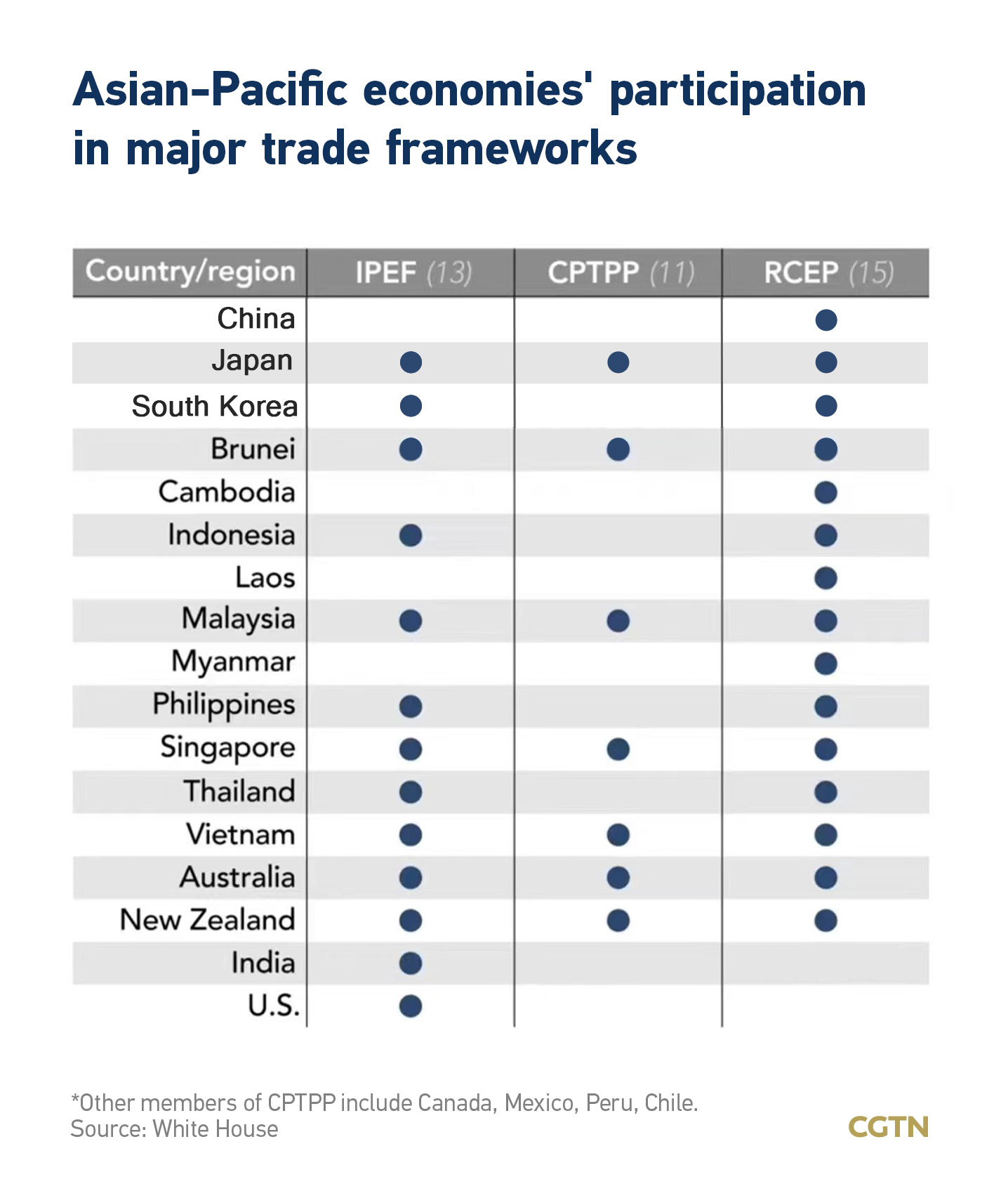
President Joe Biden speaks during a news conference with Japanese Prime Minister Fumio Kishida at Akasaka Palace in Tokyo, Japan, May 23, 2022. /CFP
President Joe Biden speaks during a news conference with Japanese Prime Minister Fumio Kishida at Akasaka Palace in Tokyo, Japan, May 23, 2022. /CFP
U.S. President Joe Biden unveiled his Indo-Pacific economic plan on Monday, involving 13 nations in the region, but without China and without substantial benefits guaranteed.
The Indo-Pacific Economic Framework (IPEF) was launched during Biden's visit to Japan, the second stop in his debut Asia tour beginning in South Korea last week.
"The United States is an Indo-Pacific economic power, and expanding U.S. economic leadership in the region is good for American workers and businesses – as well as for the people of the region," said a White House statement.
Besides the U.S., 12 nations joining the IPEF include Australia, India, Japan and South Korea, while China, the second largest economy in the world, is currently not on the list.

The plan has drawn criticism from Beijing, where it is widely seen as Washington's latest move to isolate China with its partners.
The pact claims to be about "freedom and openness", but is keen on forming cliques; it also claims to "change China's surrounding environment" in an attempt to contain China, Chinese State Councilor and Foreign Minister Wang Yi said on Sunday.
Like other countries in the region, China welcomes initiatives that are conducive to strengthening regional cooperation, but opposes attempts to create division and confrontation, Wang said at a press conference, asking which category the IPEF fell into.
No substantial benefits yet
Besides visions of economic cooperation, the IPEF has not detailed any substantial benefits that it can provide to its signatories yet.
On March 31, U.S. Trade Representative Katherine Tai said the IPEF will not include a free trade deal that lowers tariffs.
Matthew Goodman, senior vice president for economics at the Center for Strategic and International Studies in Washington, suggested that some Pacific signatories will be disappointed because the pact is not expected to include provisions for greater access to the U.S. market, according to Politico.
"I think a lot of partners are going to look at that list and say: That's a good list of issues. I'm happy to be involved," said Goodman, who was director for international economics on the National Security Council during President Barack Obama's administration. "But, you know, are we going to get any tangible benefits out of participating in this framework?"
In 2020, the Association of Southeast Asian Nations (ASEAN) became China's largest trading partner, while China has maintained its status as ASEAN's largest trading partner since 2009, according to Chinese customs.
At the beginning of this year, the Regional Comprehensive Economic Partnership (RCEP), the world's largest free trade agreement including six of ASEAN members, came into force.
The RCEP is expected to eventually eliminate tariffs on as much as 90 percent of goods traded between its signatories.

